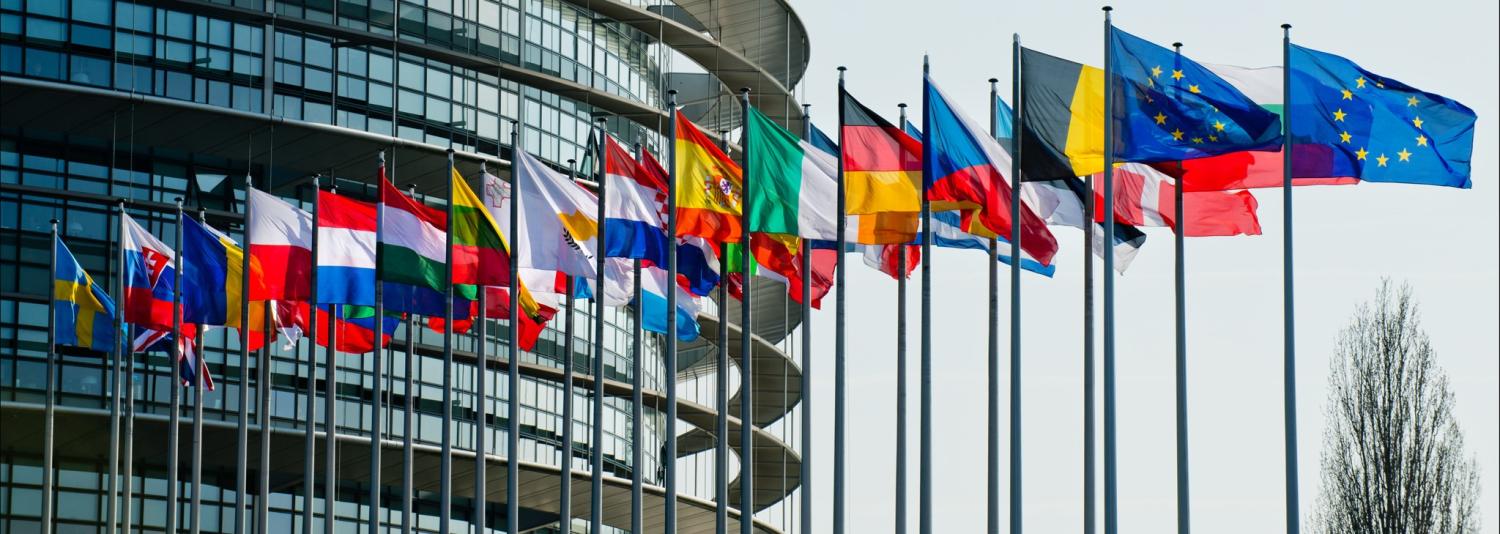Nationalism is contrary to what the EU is all about: nation states pledging to further coordination and cooperation for the common good based on common heritage and values, preventing the nationalist and authoritarian deviation that has continuously dragged Europe into conflict over the centuries.
Should populists across the continent tip the balance of power in their favour, could the union survive? Could national governments retake major parts of hitherto shared sovereignty, yet preserve a certain kind of European unity still desired by clear majorities in those same countries?
Some conservatives in Europe (and pundits such as Leonid Bershidsky at Bloomberg) answer in the affirmative. They point to shared interests with regard to trade, security and immigration, such as a shared commitment to securing common borders and preventing the ‘harvesting of social aid’ by economic migrants within.
Let’s look closer at migration from outside the EU and at internal economic migration (an inevitable consequence of the internal European market). The first is indeed a problem, the second is not.
Populist governments or not, it is evident that Europe cannot absorb repeated waves of political refugees from the Middle East and economic migrants from Sub-Saharan Africa likes those seen in 2015 and 2016, especially as a considerable number of EU governments (either populist on immigration policy, like Hungary, Poland and Slovakia, or populist leaning, like France, Finland, Austria and the UK) refuse to seriously engage in discussions on migration burden-sharing (at this point a quick sidelight should be shone on the ridiculously low figures of Syrian war refugees accepted by some Western countries, such as the US and Australia, that are less easily reached by these refugees).
Given the nationalist tilt that got them elected in the first place, could populist governments miraculously coordinate European border security after having dismantled most all common structures? Of course not. Such coordination among national administrations needs a focal point where difficult quid-pro-quo solutions (here involving economic and political incentives for open borders) are hammered out and applied. Such an indispensable focal point exists already. It is called ‘Brussels’ in shorthand and it designates the relatively few ‘Eurocrats’ at the EU Commission who manage the fine balancing act between shorter-term, national interests and the longer-term, common good required by a supranational organisation.
Internal economic migration within the European open market is a totally different story. Let me add that this includes also economies of non-member states such as Norway and Switzerland. They profit from the open market, and pay for it too, but are not part of its decision-making. Thus they are members without rights – which, incidentally, is why British ‘Brexiteers’ categorically refuse to even consider going down the Norwegian (European Economic Space) or Swiss (bilateral agreements with the EU) routes.
As in any other internal market, labour gravitates within the EU to where needs exist and adequate payment is offered. Without this basic right to freedom of movement, a good part of the economic success story that the EU has been for a large majority of its citizens would disappear. Without plumbers, carpenters and electricians from Eastern Europe, as well as architects, engineers and technicians from Spain and Italy, a good number of constructions sites in France and in the UK would lay idle. Without well-trained doctors from Germany and nurses from the Balkans, many of the hospitals in Sweden, Norway and Switzerland would be unable to function effectively. Just as the US and Australia depend on 'foreign' labour to power their universities, research sites and private sector R&D, European education and research would suffer greatly without free movement of persons.
EU countries already have at their disposal most of the Brussels-approved safeguards they need to guard against economic migrants who seek to exploit differences in social benefits among the various member countries. Anybody who claims the opposite is trying to ride to political victory in the post-factual world of the Great Donald.
As is case with migration, the other major challenges facing Europe and the rest of the world (climate change, the environment, energy, inequality and thus social policy, the digitisation of our daily lives) are of a nature and scale beyond the means of the nation state. Coordinated cooperation (including the transfer of some formal sovereignty to a focal point) is the only way of regaining the initiative for the basic task of national governments: bettering the lives of their electorate.
In a time where fundamentals of the liberal order that we have known and profited from are starting to totter (a more isolationist US, the appearance of triumphant authoritarian rule in China, Russia and Turkey), it is more important than ever to project a united European position. The alternative is to become a disunited band of helpless nation states at the wrong end of Eurasia.
Photo: Flickr/European Parliament

